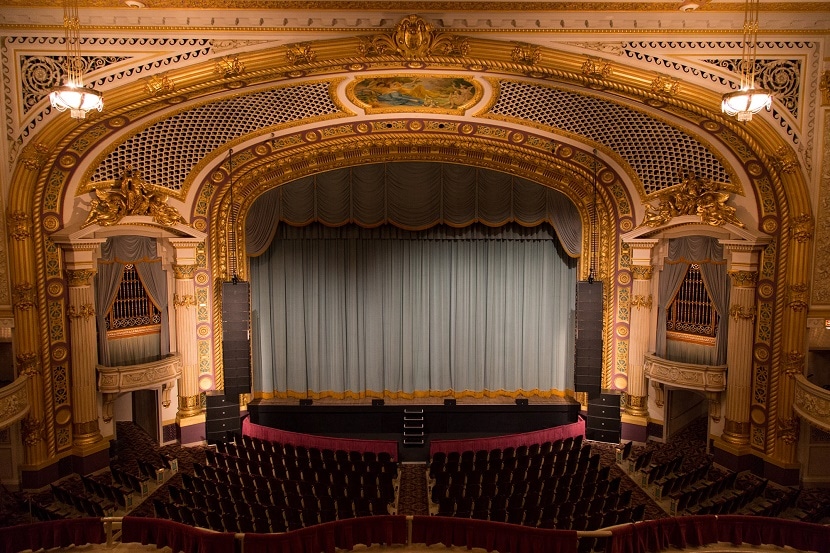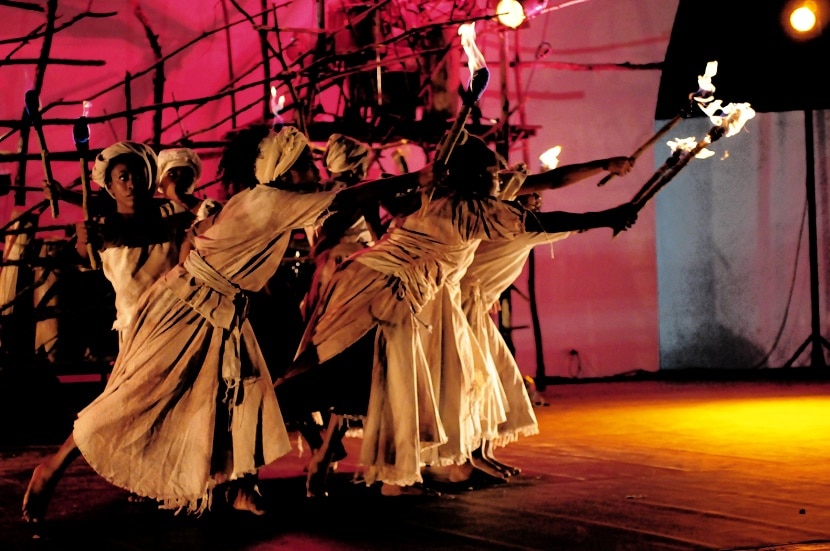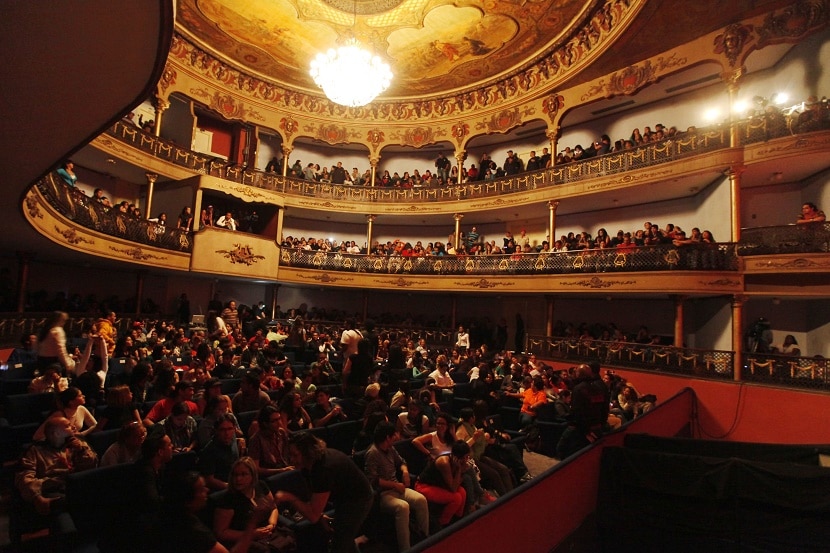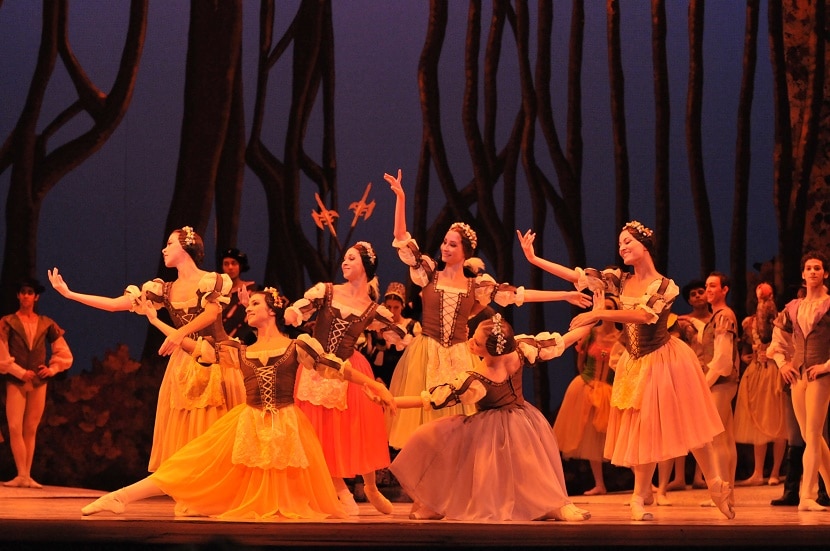
The theater of Venezuela is one of the most recognized and popular worldwide. It is a theater recognized for its antiquity and also for the quality of its shows that do not leave anyone indifferent. In addition, his works show how the theater of Venezuela has a great influence of cultures from the first to the time in which they are made.
Theater

Theater is a collaborative form of artwork that uses actors and actresses to present to an audience the experience of a real or imaginary event in a specific location and do it live. In the theater it is represented through gestures, words, song, music or dance. Scenes can also be represented with painted landscapes or other elements that give meaning to the stage within the context of the play. Lighting and sounds are also used to give immediacy to the experience.
Today there is also modern theater that in a broad sense includes representations of plays, musical theaters and connections between theater, dance and song.
The theater in Venezuela
The theater in Venezuela did not begin with the arrival of the Spanish, but was already in force among its citizens long before. Venezuelan theater began in the time of the American aborigines. They showed different scenarios with artistic demonstrations to the people who enjoyed it.
Later, with the arrival of the Spanish to American lands, the theater had a great evolution, especially from the seventeenth century. The first beginnings of theater -as a theater itself- in Venezuela were around 1600 with the arrival of the Spanish.
When the Spanish arrived and made the first theatrical performances, most of the theme was religious and people liked and enjoyed looking at them. In those years, theater plays were also started in Caracas and the authors were mostly of Spanish origin and had a very baroque scenographic projection.
People liked theater very much because it was a form of entertainment that amused them and made them spend time with their loved ones in an entertaining way. Afterwards, they had a topic of conversation and could escape for a while from the reality of their lives.
Expansion of theatrical works

After the first theatrical works were made, this is when the expansion of other forms of cultural expression began, as many people began to develop different acting performances at religious festivals. What's more, there began to be other themes although the religious theme was the most acclaimed and the one that was used the most, even though they were different works, because religious works were the most popular. If you wanted a play to have a large audience to see it, it should be a religious-themed play.
Venezuelan theater in the XNUMXth century
In the following century, during the eighteenth century, the first corralones and comedy patios began to be built, and the theater of Venezuela began to spread although the most popular plays and those that more people attended were always performed in the main squares.
In the year 1767 something very important happens for the theater of Venezuela and that is that two plays with Venezuelan authors are premiered, something unheard of since normally Spanish authors were the ones who represented the plays.
The name of the plays were: 'Auto Sacramenta de Nuestra Señora del Rosario' and the other had a short name: 'Loa'. One of the main characteristics of these works is that they had both Spanish, English and American cultural influences. Something that the public liked a lot and they quickly became famous.
Great authors of the Venezuelan theater

Cesar Rengifo
Venezuelan theater began to develop in modern times from 1945, being one of the best known authors César Rengifo. Cesar devoted himself to theater on issues related to the economy and problems with oil, although he also devoted himself to historical issues.
Isaac Chocrón
Isaac Chocrón was a playwright actor who stood out as a business person in the theater and was also a professor at the university. In his theaters he tried to show the public the concern of the people in Venezuela.
Jose Ignacio Cabrujas
Within the historical theme of the theater we also meet José Ignacio Cabrujas who was part of the first generation of modern theater in Venezuela. Try to show Venezuelan culture without being so influenced by the foreign culture of the country.
Gilberto pinto
This actor is also concerned about social issues and that is why, being an author within the sixties, he will stand out for producing a theater that clearly reflects Venezuelan daily problems, where the public feels very identified.
Román Chalbaud
Román Chalbaud transmits enthusiasm in his performances and shows the population the changes in the country, especially those changes and difficulties that people must go through, the bad manners they receive when they go from the harsh life of the country to the city to make a better living . It also shows how vandalism is common and as many criminals only find in robbery the way to survive in an unsafe country.
As you can see, the Venezuelan theater from its beginnings and until today has always chosen to respond and teach the political and social reality of its country, using the culture so that the viewer can reflect and change reality. Because at the end of the day, we are the only people responsible for our society and what can happen in it. And it is that the theater really, is this ... offer the opportunity to the public to live stories through real or fictional characters, but also, give them the opportunity to reflect on the reality of society, on the suffering of people or the achievement of others ... reflecting on what they can do to improve everything.
umm I liked everything that talks is interesting
I don't like this page because it's crap
the story is very poor, it needs to be better documented. Thank you